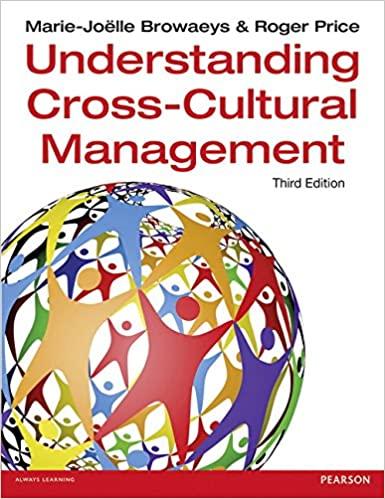Selim Bora had never been south of the Sahara before the call came to design and build
Question:
Selim Bora had never been south of the Sahara before the call came to design and build the conference centre for an African Union summit in just six months.
But a week later the 43-year-old Turkish businessman was in Equatorial Guinea. His family-owned company, Summa, built the 13,000-square-metre complex in time for the 2011 AU summit in Malabo.
‘We had no clue about the country when we went there’, Mr Bora says. ‘We had to figure it all out.’
His story is part of a concerted push by Turkey deep into Africa, as it follows China, Brazil and India in seeking to secure economic and political influence on the continent.
As Ankara looks to diversify away from the stuttering European economy, it is searching not only for new markets but also a more prominent role on the world stage. In the past three years, Turkey has opened 19 new embassies on the continent.
It now has 26 south of the Sahara and will have opened new delegations in Chad, Guinea and Djibouti by the end of this month, as Recep Tayyip Erdogan, prime minister, visits Gabon, Niger and Senegal.
‘The aim is to develop ties, to close gaps, to go to places where we have never been’, says a Turkish official. Travelling to the region is becoming easier.
Last month, Turkish Airlines, a 49 per cent stateowned company, announced the start of direct flights to Niamey, Ouagadougou, Yaoundé and Douala, bringing the number of destinations in sub-Saharan Africa to 24. Underpinned by such diplomatic and transport ties, Ankara’s commerce with sub-Saharan Africa jumped from $742m in 2000 to almost $7.5bn in 2011.
Today, Mr Bora says, the region accounts for 40 per cent of his group’s business – total revenues are $300m a year – and he is interested in developing further ties with countries ranging from Niger to Angola. He adds that the Turkish construction sector as a whole is expanding from North Africa to the oil and gas rich countries of western Africa.
He highlights Turkish executives’ willingness to work in challenging or unusual circumstances, including for regimes such as Equatorial Guinea, which was criticised for spending €500m on the summit complex and carried out arrests before the event.
‘For us, it’s really the same, regardless of the regime, regardless of the geographical conditions, regardless of the climactic conditions’, Mr Bora says. ‘For us the important thing is to get the job done.’
Such projects have broader economic consequences, as well. In a recent Financial Times interview, Erdem Basci, the governor of Turkey’s central bank, grouped Africa together with Russia and the Middle East as a region with a fast-growing appetite for imports that could help Turkey diversify away from the EU. ‘Our businessmen are extremely rapid and fl exible moving into these markets’, he said.
With 55 countries, Africa represents more than a quarter of all UN members: a potential repository of votes for a state willing to invest politically in the region. Mr Ulgen a former Turkish diplomat now at Carnegie Europe, depicts Turkey’s stance as a halfway house between the EU and China.
It does not tie aid to governance conditions but sees the relationship as more than merely economic.
Its aid agency, which delivered more than $150m to countries in sub-Saharan Africa last year, says denying aid to human rights violators risks punishing those most in need of help. Mr Ulgen cautions that the biggest danger for Turkey is to overpromise: Ankara’s $800bn economy cannot match the resources of Brussels and Beijing.
Moreover, commerce with sub-Saharan Africa still represents only a fraction of Turkey’s $376bn overall trade. While Arcelik, a Turkish whitegoods manufacturer, acquired Defy, a South African equivalent, for $325m in 2011, most of the country’s investments in the region are considerably smaller.
Nevertheless, Turkey’s businessmen and politicians are increasingly looking to Africa. Erbil Oksuz, a Turkish construction subcontractor who has been working in Uganda for a year, complains about health risks and the entrenched position of Chinese companies. But he enthuses about the country’s infrastructure needs and its discovery of oil. ‘It is worth the effort . . . Africa is riskier but we make more money’, he says. ‘More Turks are coming.’
Questions
1 How could you describe the business culture of Turkey?
2 What are the main reasons for Turkey doing business in Africa?
Step by Step Answer:

Understanding Cross Cultural Management
ISBN: 9781292015897
3rd Edition
Authors: Marie Joelle Browaeys, Roger Price





